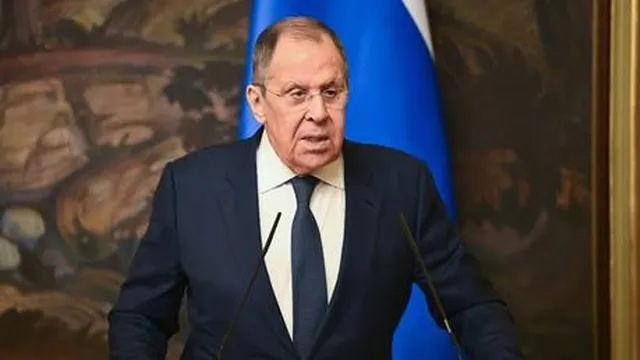
U.S. weighs diplomatic solutions instead of sanctions in Ukraine conflict
2025-04-27 20:14- U.S. Secretary of State Marco Rubio highlighted that the coming week will be critical for negotiations regarding the Ukraine conflict.
- The U.S. administration has refrained from implementing new sanctions against Russia, focusing instead on diplomatic solutions.
- The outcome of this week could determine the future of U.S. involvement in the peace process and the legitimacy of the parties' willingness to reach a settlement.
Express your sentiment!
Insights
In the ongoing conflict in Ukraine, U.S. Secretary of State Marco Rubio emphasized the significance of the coming week for negotiations aimed at establishing peace between Russia and Ukraine. The U.S. administration has chosen not to impose new sanctions on Russia, believing that such actions could obstruct diplomatic efforts and extend the war. Rubio stated that the administration is trying to determine whether the ongoing diplomatic initiative has the potential to yield positive results. He acknowledged the challenges and complexities involved in reaching a resolution, asserting that real progress has been made but stressing that more work remains. The situation is fragile, and both sides' willingness to engage in dialogue will be crucial. President Donald Trump has been vocal about wanting a diplomatic resolution while expressing skepticism about Russian President Vladimir Putin’s commitment to peace. Trump's recently held discussions with Ukrainian President Volodymyr Zelenskyy indicate efforts to apply pressure on both parties to reach an agreement. The conflicting narratives coming from both the U.S. and Russia highlight the tension and uncertainty surrounding the peace process, with Trump questioning whether Putin genuinely desires an end to hostilities. As these diplomatic efforts unfold, the upcoming week will serve as a pivotal moment to assess the viability of a negotiated settlement. The U.S. administration remains committed to exploring all diplomatic avenues before opting for punitive measures, although many observers are concerned about the potential for the conflict to drag on if negotiations do not progress satisfactorily.
Contexts
The history of U.S. sanctions on Russia is a complex narrative shaped by geopolitical tensions, events of international significance, and the pursuit of U.S. foreign policy objectives. The imposition of sanctions began in earnest after the Cold War, particularly in response to Russia's actions that were viewed as aggressive or contrary to international norms. The most significant milestone was the 2014 annexation of Crimea by Russia, which prompted the United States to implement a series of sanctions targeting key individuals, businesses, and sectors within the Russian economy. These sanctions aimed to penalize Russia for its violation of Ukraine's sovereignty and to deter further aggression in the region. These measures included asset freezes, travel bans, and restrictions on access to U.S. financial markets, primarily affecting Russia's energy sector, financial institutions, and defense exports. The U.S. worked closely with allied nations to harmonize these sanctions, ensuring a collective approach to curbing Russian activities. As the situation evolved, additional sanctions were introduced in response not only to the annexation of Crimea but also to continued support for separatists in Eastern Ukraine, interference in U.S. elections, and various cyberattacks attributed to Russian state actors. The aim was to maintain pressure on the Kremlin to engage in diplomatic solutions rather than military confrontations. The impact of these sanctions has been significant, leading to a marked decline in economic growth for Russia, a devaluation of the ruble, and increased isolation from Western markets. In response, Russia has sought to adapt, implementing counter-sanctions and looking for new trade partnerships beyond the U.S. and Europe. The Russian government has also launched various domestic measures to strengthen its economy against external pressures, as well as engaging in rhetoric to galvanize national sentiment against perceived foreign aggression. As of 2025, the landscape of U.S. sanctions on Russia continues to evolve, responding to ongoing issues such as human rights violations, military actions, and attempts to undermine democratic processes in other nations. The U.S. has signified its intention to maintain a tough stance regarding Russia, advocating for a multi-faceted strategy that includes sanctions as a key tool in its foreign policy arsenal. With international relations continuing to fluctuate, the future of U.S.-Russia interactions will likely hinge on the effectiveness of these sanctions and the broader geopolitical climate.